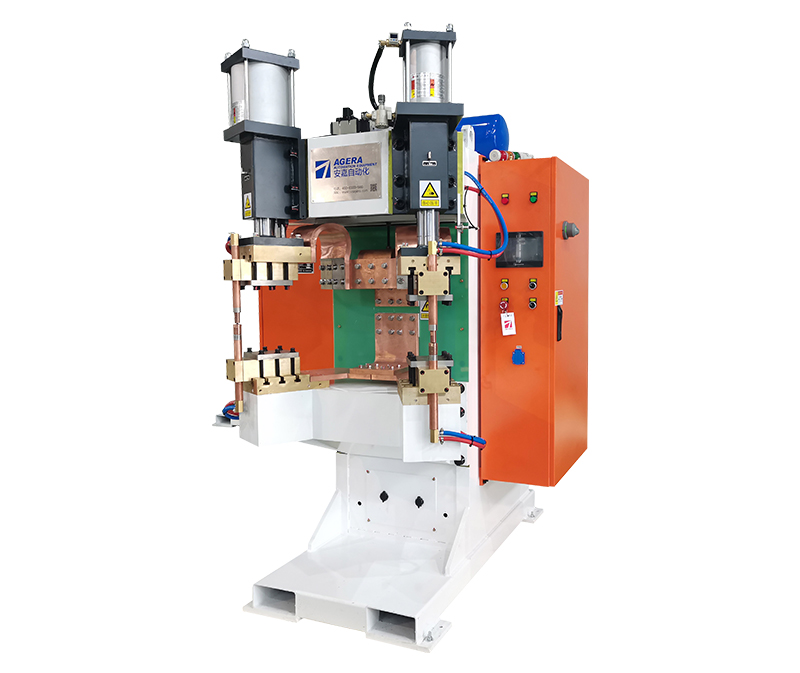Nut spot welding machines are widely used in industrial applications for joining nuts to metal components. The choice of electrode material is crucial in achieving high-quality welds and ensuring the longevity of the welding equipment. This article explores the commonly used electrode materials in nut spot welding machines and their benefits in various welding applications.
- Copper Electrodes: Copper electrodes are one of the most popular choices in nut spot welding machines. Copper offers excellent thermal conductivity and high electrical conductivity, making it ideal for transferring heat efficiently during the welding process. Copper electrodes also exhibit good wear resistance and durability, enabling them to withstand prolonged use without significant deformation or damage.
- Chromium Zirconium Copper (CuCrZr) Electrodes: CuCrZr electrodes are an alloy of copper with small amounts of chromium and zirconium. This alloy provides enhanced resistance to high temperatures, making it suitable for applications that involve prolonged welding cycles or high welding currents. CuCrZr electrodes offer excellent wear resistance, reducing the need for frequent electrode replacements and resulting in cost savings.
- Tungsten Copper (WCu) Electrodes: Tungsten copper electrodes combine the high melting point and hardness of tungsten with the excellent thermal conductivity of copper. This combination results in electrodes capable of withstanding extremely high temperatures without significant deformation. WCu electrodes are commonly used in applications that require welding at elevated temperatures or with high welding currents.
- Molybdenum (Mo) Electrodes: Molybdenum electrodes are another popular choice in nut spot welding machines. They exhibit high melting point and excellent thermal conductivity, making them suitable for high-temperature welding applications. Molybdenum electrodes are often preferred when welding materials with high thermal conductivity, as they effectively transfer heat to create reliable welds.
- Copper Tungsten (CuW) Electrodes: CuW electrodes are a composite material consisting of copper and tungsten. This combination offers a balance of good electrical conductivity from copper and high-temperature resistance from tungsten. CuW electrodes are used in applications that demand both high electrical conductivity and resistance to extreme temperatures.
In nut spot welding machines, the choice of electrode material plays a vital role in achieving optimal welding results. Copper, chromium zirconium copper, tungsten copper, molybdenum, and copper tungsten are some of the commonly used electrode materials, each offering specific advantages in different welding applications. Selecting the appropriate electrode material based on the specific welding requirements ensures efficient and high-quality welds, contributing to the overall productivity and performance of the nut spot welding machine.
Post time: Jul-19-2023



